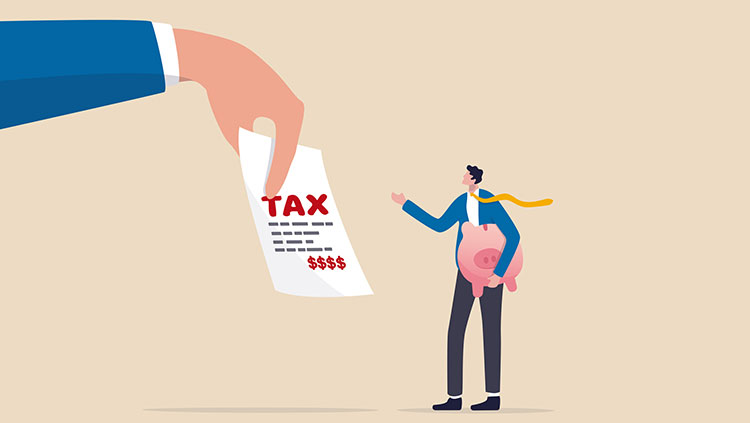Loading component...
ATO ramps up tax debt retrieval
Content Summary
- Taxation
Loading component...

This article was current at the time of publication.
After easing off on its debt collection activities during the height of the COVID-19 pandemic, the Australian Taxation Office (ATO) is now actively pursuing the recovery of billions of dollars in outstanding tax liabilities.
A key part of the ATO’s recovery program has been to write to individuals and businesses with outstanding tax debts, warning it will take further action unless they make contact and develop an acceptable plan to repay them.
“Over the past two years we have taken a tailored approach to lodgement and payment enforcement in response to COVID-19 and [other] adverse events,” says an ATO spokesperson.
“Debt collection activities have now resumed after a general pause during the lockdowns.”
In addition to its regular engagement activities, the ATO has recently written to around 70,000 businesses under its two key client awareness programs – Disclosure of Business Tax Debt and the use of Director Penalty Notices.
The programs are focussed on those that have not responded to its calls and letters and have significant outstanding tax obligations.
Under the Disclosure of Business Tax Debt measure, the ATO may in certain circumstances disclose a taxpayer’s tax debt information to credit reporting agencies.
“Disclosing business tax debts is an important action we’re taking to encourage taxpayers to engage with us and take action to resolve their debts, help level the playing field, and support businesses to make more informed decisions on who they provide credit by making overdue tax debts more visible,” says the ATO.
“By signalling our intention to make a disclosure, we hope clients will act on this warning.”
The Director Penalty Notice awareness program contacts directors of companies that have overdue amounts in respect of PAYG withholding tax, the Superannuation Guarantee Charge, and GST.
Directors are being advised they may be personally liable if their company debt is not actively managed.
Need to act quickly
David Ross CPA, a partner at insolvency and restructuring firm I & R Advisory, says accountants need to be aware that if they’re getting such letters on behalf of clients they need to act quickly.
“The ATO was very accommodating through the pandemic – which was great – and that certainly saved a lot of businesses,” Ross says.
“But certainly now they are ramping things up, particularly against those that aren’t engaging with them. That’s the major thing.
“The ATO has been sending letters to those that have not entered into a payment arrangement and engaged with the ATO and warning they’ll be reported to credit reporting bureaus,” he confirms.
Ross says the Disclosure of Business Tax Debt to credit reporting agencies is a relatively new tool in the ATO’s debt collection procedures.
“It affects their credit rating and the business’s ability to raise funds,” he explains.
“The key thing is that you’ve just got to engage with the ATO. They’re targeting people who aren’t engaging and or who aren’t reporting their debts.”
Dino Del Medico CPA, director of accounting firm Austens, says the ATO’s tax debt honeymoon period was always going to come to an end.
“They need to start collecting, just like any other business,” he says. “It would be fair to say the ATO has the longest debtors list in the history of Australia.”
Working with the ATO
Del Medico warns that any taxpayers with outstanding debts must manage their tax payments.
“I don’t have a problem if ATO representatives call up my clients who need to pay their tax because ultimately it needs to be paid.
“If the ATO does need to go to them, the taxpayer has a chance of negotiating a suitable term.”
However, Del Medico says it’s also useful at times for tax agents and their clients to contact the ATO together to work out an acceptable repayment solution. This may even lead to the waiving of penalties and interest.
“I had a client who had quite a substantial six-digit tax bill which was paid back over a few years including penalties and interest,” he says.
“The client was on the phone to the ATO with me and we were successful in getting back $64,000 in interest payments.”
He says tax agents can help their clients by contacting them and asking if they can pay their tax debts in full or part.
“If they can’t, the clients need to work out the cash flow they need monthly and how much payment after that they can make. I then like to get the client in the office and call the ATO with them in the room.”
That way, because the client is present, an ATO representative can determine that there’s a genuine commitment to the repayment process.
How to make contact
“Taxpayers facing difficulty meeting their obligations are encouraged to contact us or their registered tax professional and discuss their circumstances so we can provide them with the most appropriate help and assistance,” says the ATO spokesperson.
“We know that businesses can sometimes have cash flow issues which could mean they can’t pay their whole tax bill on time.
“Those with an activity statement debt may be eligible for an interest-free payment plan,” the spokesperson reiterates.
Those with debt under $100,000 can propose a payment plan through the ATO’s online services, their registered tax or BAS agent, or by calling the ATO’s automated phone service on 13 72 26.
Loading component...
Discover more
CPA Australia Tax News
Banks’ requirements for accountants’ letters have long been risky requests. Here’s why the ABA’s 2025 Code of Practice has abolished this requirement.
- Taxation
article·Published onMalaysia Taxation
Members in Malaysia may study a local taxation subject offered by Sunway TES and the Universiti Tun Abdul Razak.
- Taxation
Australia Taxation
Australia Taxation introduces fundamental concepts of income tax law and legislation
- Taxation

Taxation
Discover all you need to know about Australian and New Zealand taxation legislation
- Taxation
CPA Australia Tax News
11 July 2024
- Taxation
Fiji Taxation
Members in Fiji may study a local taxation subject offered by the University of the South Pacific (USP)
- Taxation
